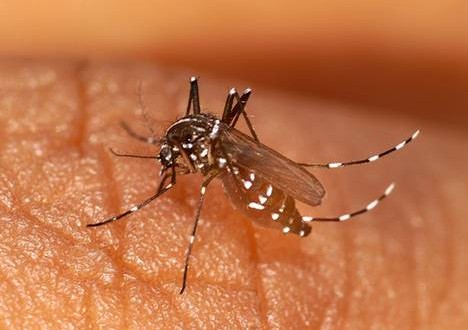Health Canada says more than 200 Canadians have been infected by a virus that has sickened hundreds of thousands of people in the Caribbean and spurred a state of emergency in Jamaica.
As of Oct. 1, the agency said Tuesday, 201 Canadians had been infected with chikungunya (CHIK-un-gun-yah), a disease caused by a virus transmitted by mosquitoes.
How chikungunya is spread
Humans and other primates are the natural hosts for the chikungunya virus. The virus is spread to humans by the bite of an infected female Aedes species mosquito – Aedes aegypti or Aedes albopictus. These are the same tropical and sub-tropical mosquitoes that carry the dengue virus. They breed in or near human habitations and prefer to feed on humans during the daytime in shady areas, but may also bite early in the night.
Signs and symptoms
Chikungunya infection is characterised by sudden onset of:
- high fever
- severe joint pain mainly in the arms and legs
- headache
- muscle pain
- back pain
- rash (about 50% of affected people).
Most people start to feel better after 7 to 10 days although some people will develop longer term joint pain.
Diagnosis
The diagnosis is based on signs and symptoms and confirmed with a blood test.
Incubation period
(time between becoming infected and developing symptoms)
Typically 3 to 7days with a range of 1 to 12 days.
Infectious period
(time during which an infected person can infect others)
Chikungunya cannot be spread directly from person to person.
Treatment
There is no specific treatment for chikungunya infection. The use of pain medication and rest can provide relief for some of the symptoms.
Prevention
- Exclusion from childcare, preschool, school or work is not necessary but infected people should avoid being bitten by mosquitoes while they are unwell.
- There is no vaccine to prevent infection.
Agencies/Canadajournal
 Canada Journal – News of the World Articles and videos to bring you the biggest Canadian news stories from across the country every day
Canada Journal – News of the World Articles and videos to bring you the biggest Canadian news stories from across the country every day




Use air conditioning or window/door screens to keep mosquitoes outside. If you are not able to protect yourself from mosquitoes inside your home or hotel, sleep under a mosquito bed net.